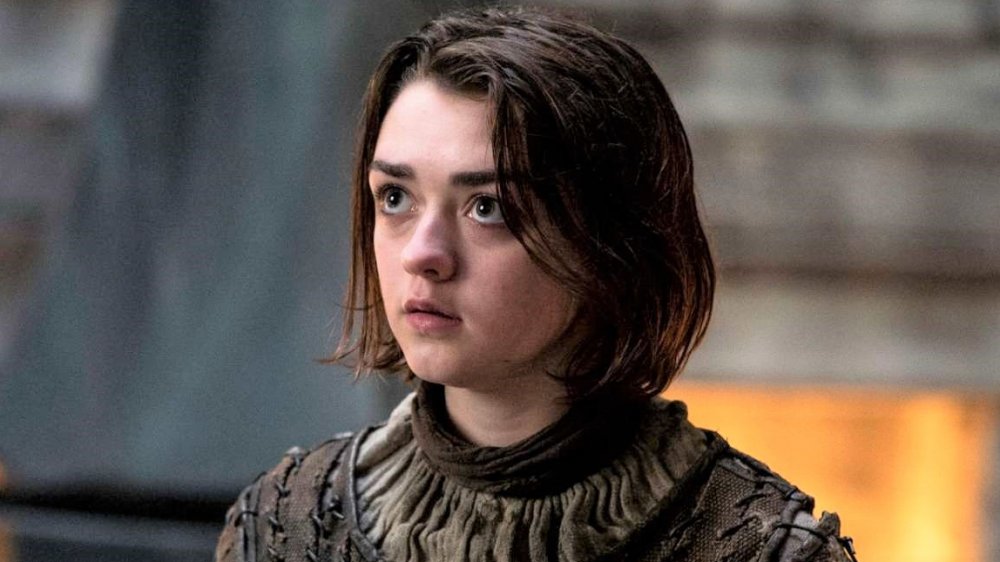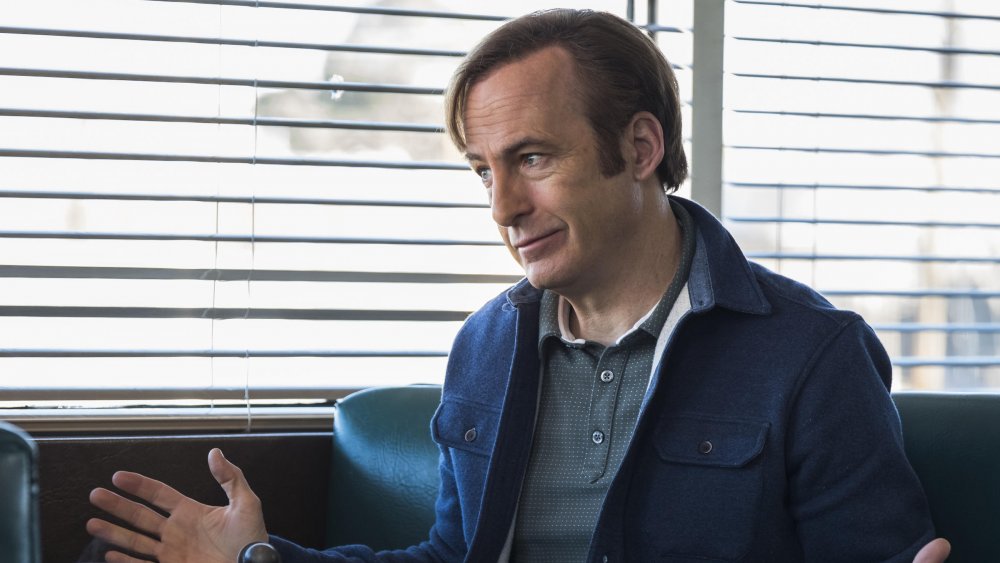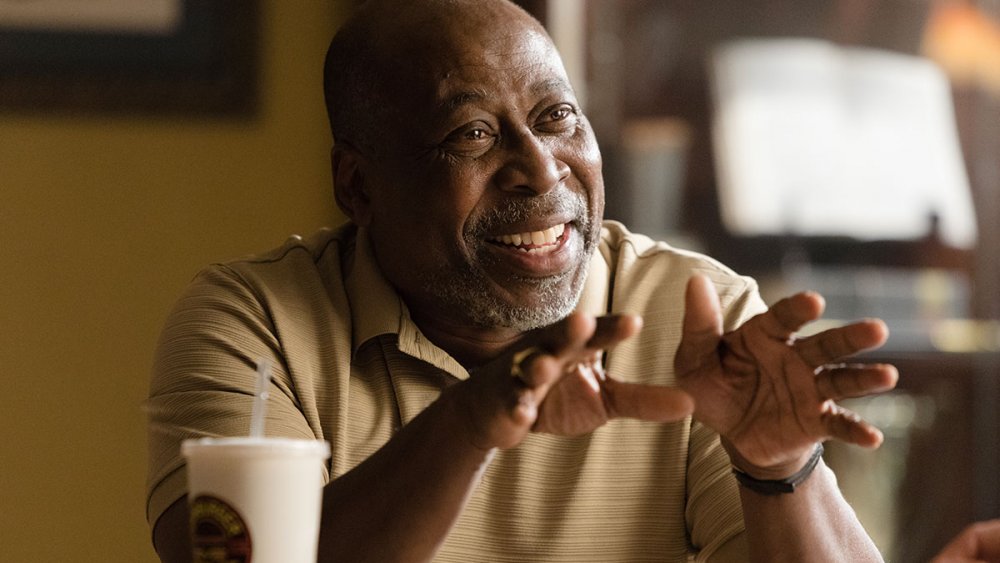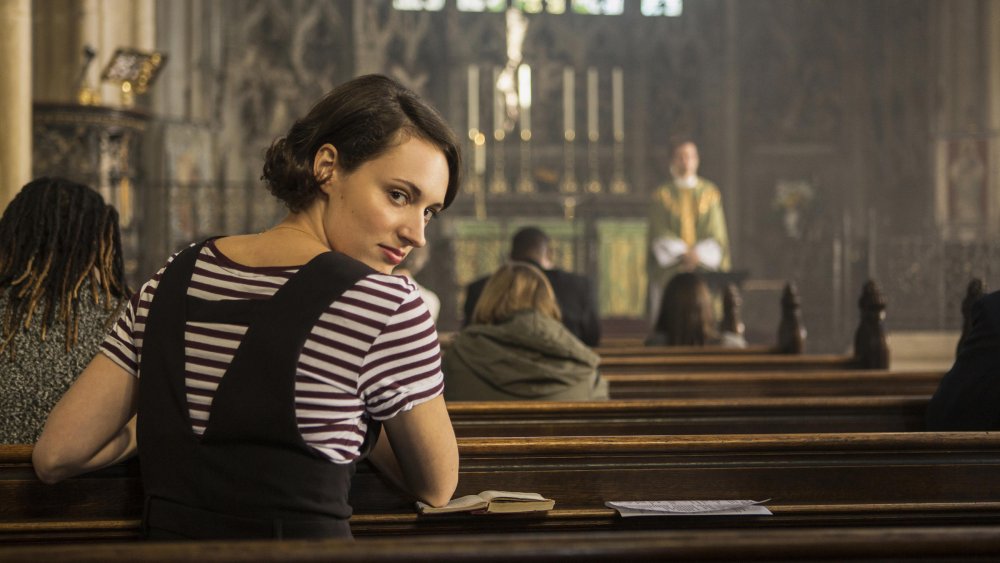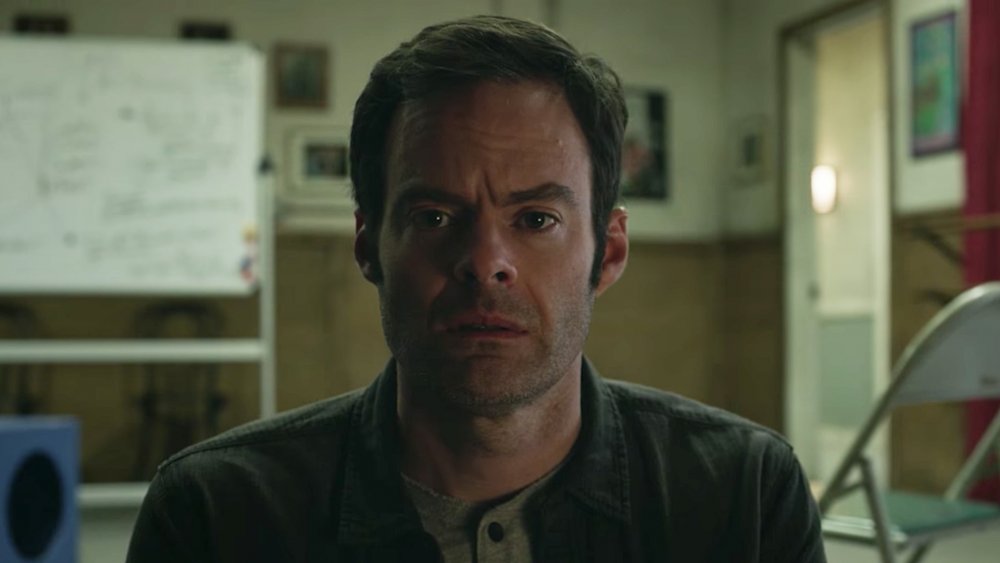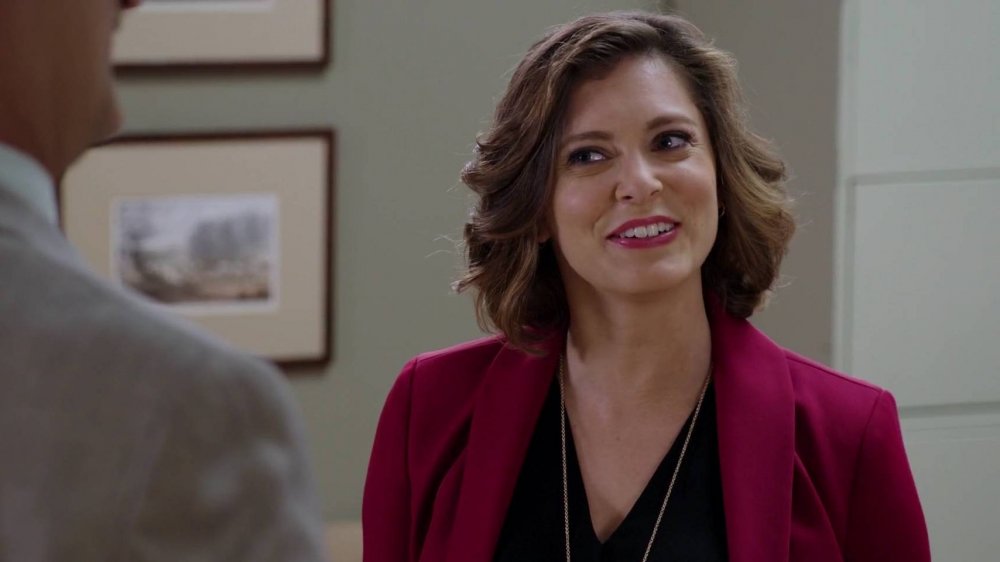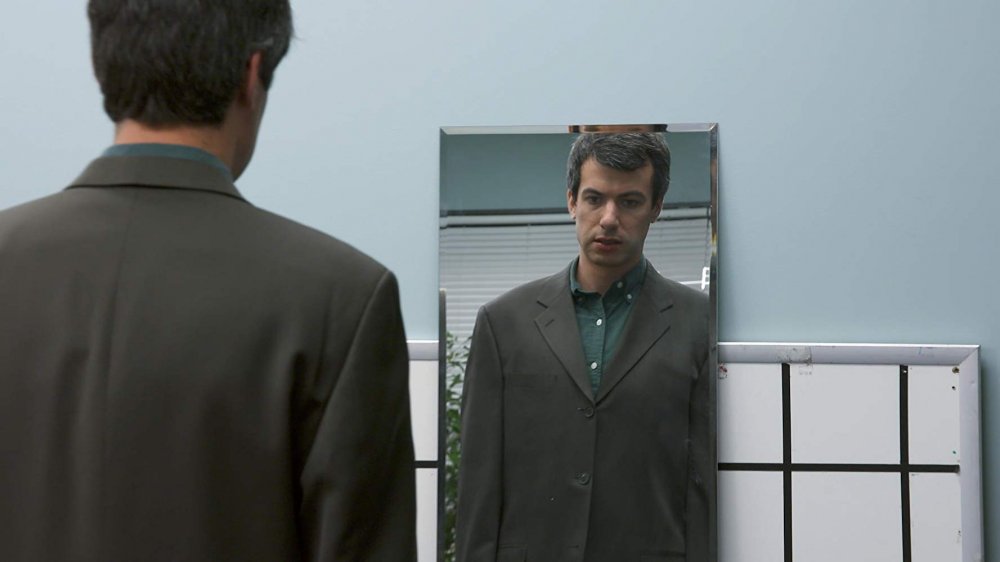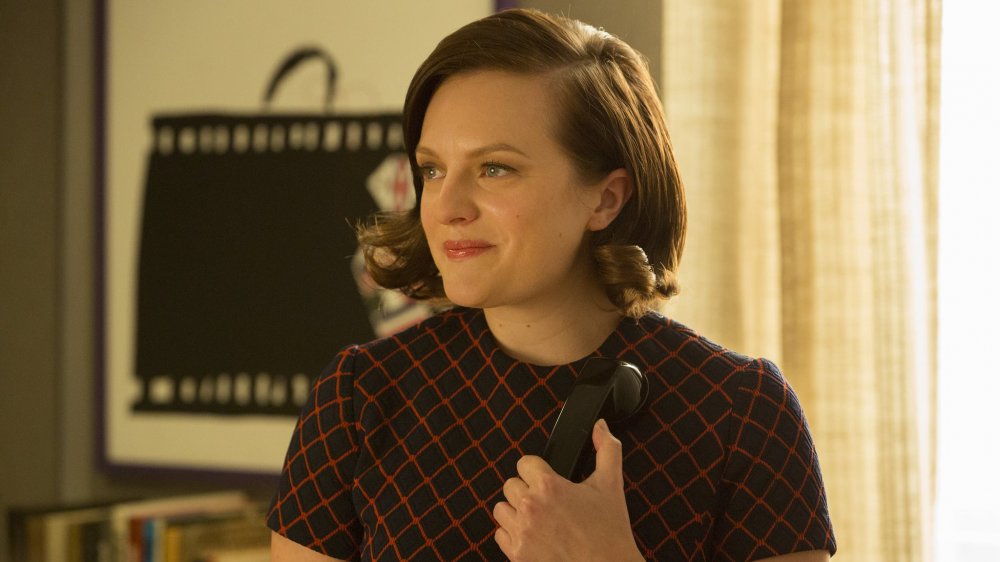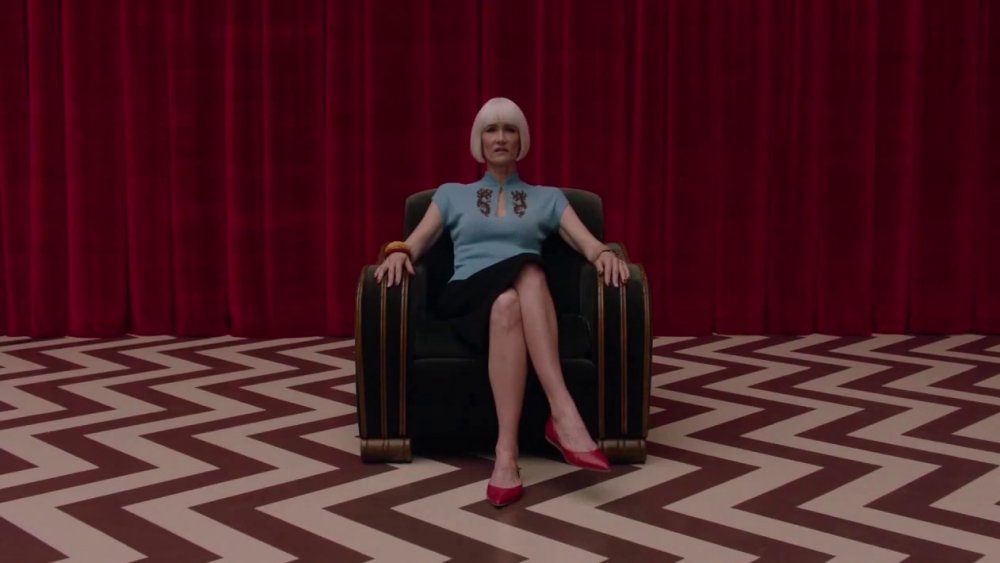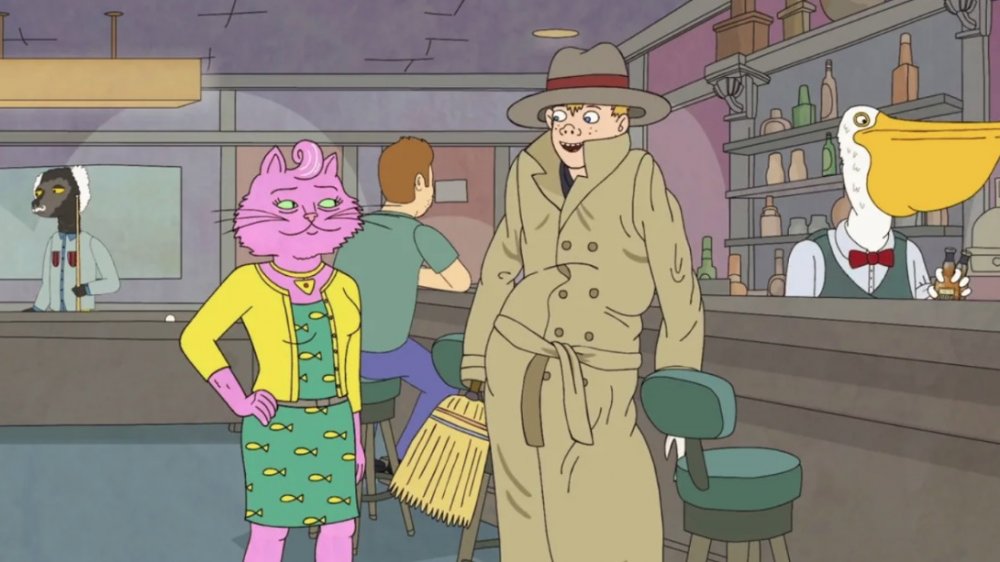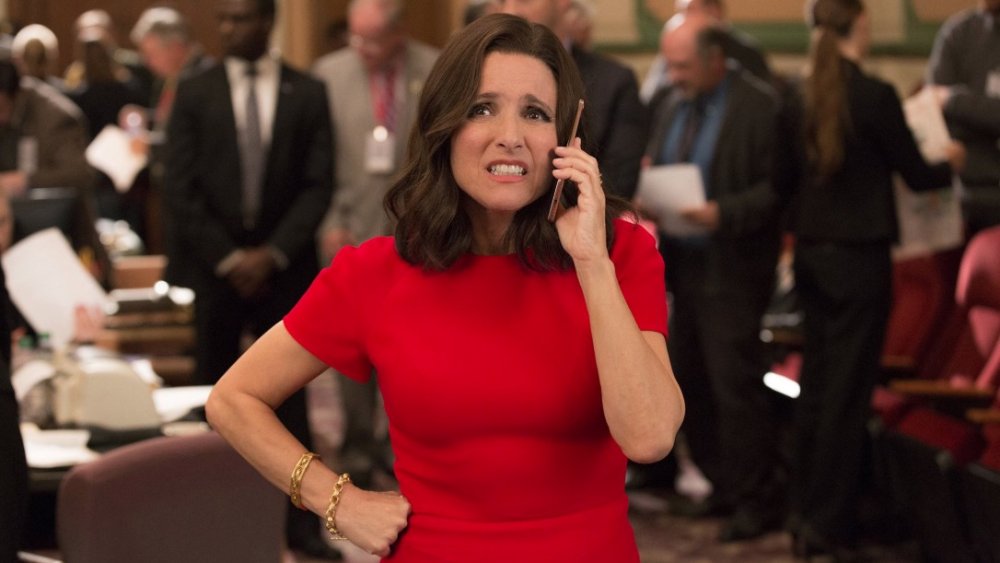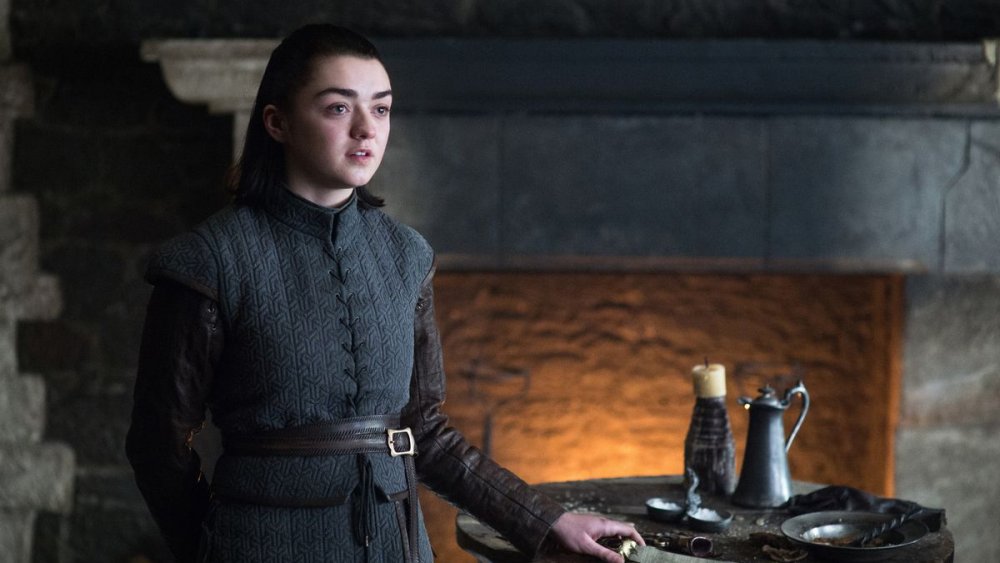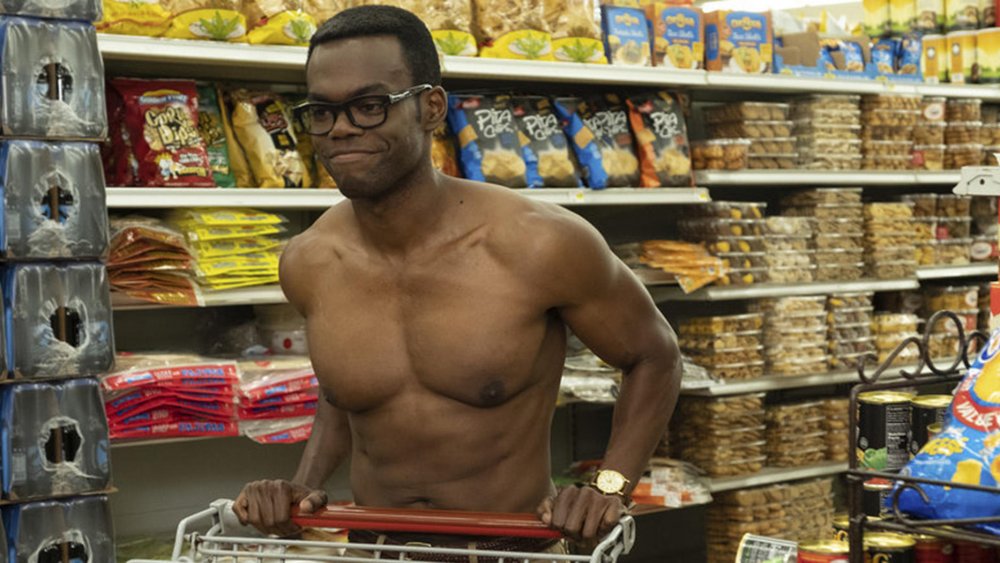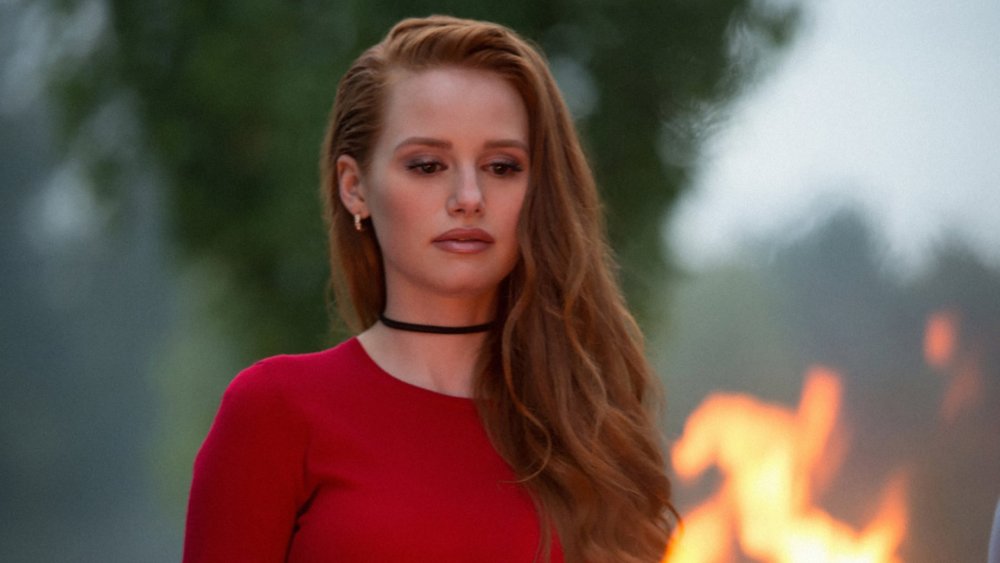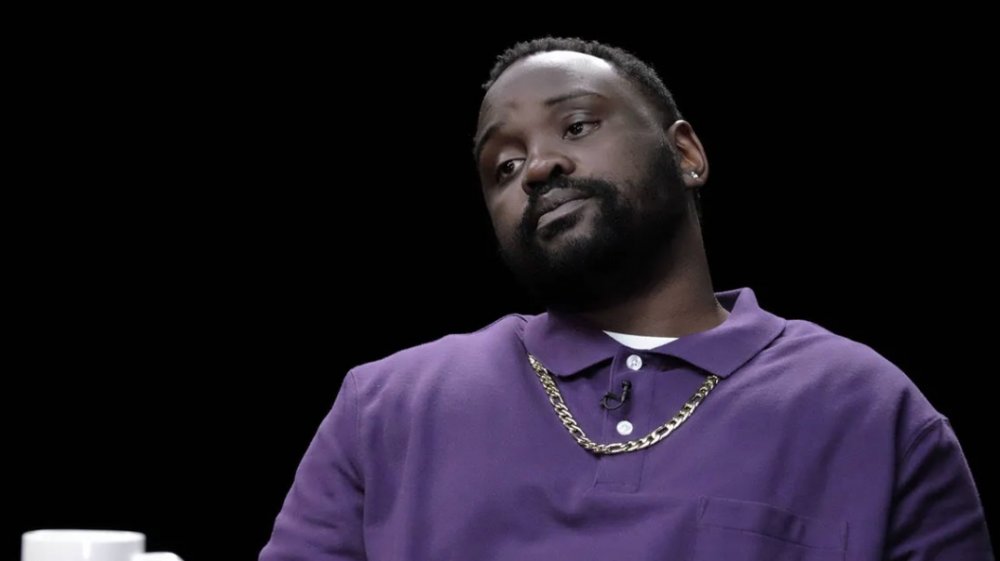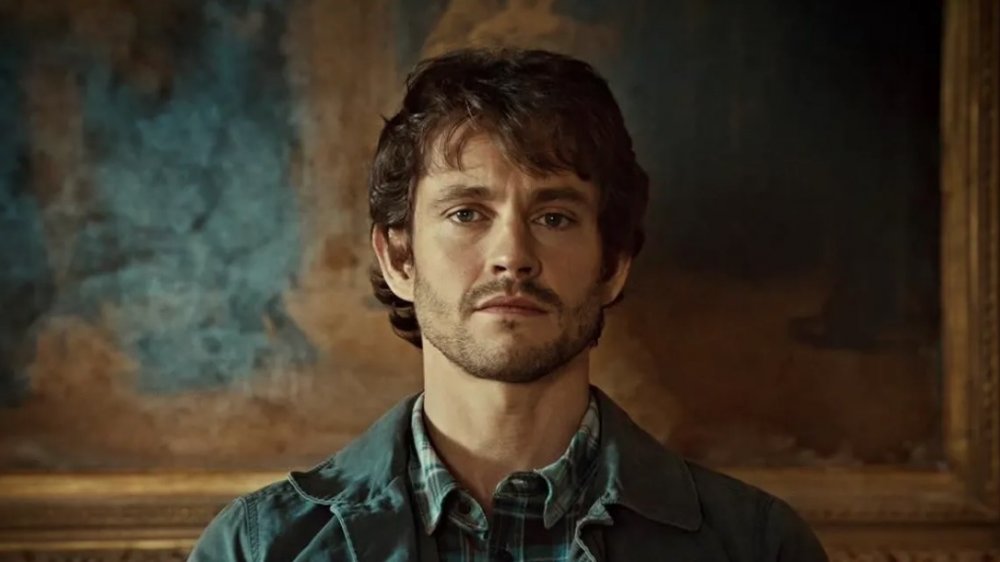The Best TV Characters Of The Last Decade
One of the nicest parts about following a long-running TV show is getting to see your favorite characters grow and change almost in real time, going from an interesting face to a fully fleshed-out person. And the 2010s were full of brilliant, well-developed television characters who evolved over the course of a decade. We're talking lawyers, politicians, and criminal investigators, all of whom earned their place in the pantheon of television greats.
So today, we're going to take a look at some of these figures who entertained us over the past ten years. They appeared in shows ranging from comedies and dramas to musicals and animated series, but no matter the genre, these fictional people felt like real human beings, and while some of them weren't exactly pleasant individuals, they were always fascinating to watch. Whether they were scene-stealing members of an ensemble or protagonists who surprised us with glimpses into their humanity, these were the very best TV characters of the last decade.
Jimmy McGill in Better Call Saul
In Breaking Bad, Bob Odenkirk was expertly deployed as skeevy criminal lawyer Saul Goodman. In a world full of sociopathic meth cooks and ludicrously competent "fixers," Saul's bumbling cowardice was a wonderful break from the tension. As useful as he could be when Walt and Jesse would wind up afoul of the law, Saul's goofiness always seemed one step removed from that of a Mr. Show sketch. The writing around Saul tended to prioritize humor instead of the mythic falls from grace that characterized the other characters.
That all changed in Better Call Saul, a prequel/sequel to Breaking Bad. In Saul, viewers were introduced to Jimmy McGill, the original identity of Saul. Where Saul could be callous, lightly suggesting that the most obvious solution to a problem was murder, Jimmy struggled to balance his internal moral code with the pressure of having an overbearing, incredibly successful older brother. Knowing where Saul ends up in Breaking Bad only makes Jimmy's efforts to do the right thing even more tragic. After all, in Better Call Saul, audiences see a character get slowly corrupted over the course of the show, a protagonist that started out far more kind-hearted and loyal than Walter White ever was.
Better Call Saul could've been nothing more than a cash grab to capitalize on the success of Breaking Bad's final season, but Odenkirk gives Jimmy an underlying humanity and drive that's so relatable it almost hurts to think of what he becomes. Better Call Saul turned a comedic side character into a wonderful protagonist, and that transformation and complexity easily make Jimmy McGill one of the best television characters of the decade.
Ernie Fontaine in Lodge 49
There's an unfortunate bias to the types of characters that are typically allowed to be on television as major characters. If you need a hint as to what those characters have in common, just think of the cast of Friends. However, Ernie Fontaine (played with beautiful humanity by Brent Jennings) doesn't fit the typical image of a television character. He's black, in his late 50s, and rocks a noticeable beer belly. He's barely hanging on to his living situation, working as a plumbing salesman who can hardly pay his rent month to month. He's in love with a married woman — who loves him back, sort of, in her own way — and is willing to sneak around her muscled husband if it means the occasional afternoon alone with her. He's also emotional and bitter, almost insulted by the youthful energy of his young ward, Bud (Wyatt Russell).
As Brent Jennings described Ernie in a Q&A, "He's feeling like the window is closing shut, and if he doesn't do something, his life will just be a life where no one ever knew that his feet walked on the planet." It's incredibly rare for a television show to follow a character that feels genuinely as if his life has passed him by. Ernie's not in his mid-20s following his dream in New York. He's scraping by as a middle-aged plumbing salesman in Long Beach. That specificity of experience lets the audience relate to Ernie like no other character around.
Phoebe Waller-Bridge's character in Fleabag
If you've somehow missed the massive success and acclaim that's sprung up around Phoebe Waller-Bridge, all you need to do is watch Fleabag to understand why she's become so popular. The actress/writer stars in the BBC show as an unnamed woman (typically referred to, outside the show, as Fleabag) who's smart, beautiful, and owns a cafe in London. She also has an emotionally distant family, a possible sex addiction, and deep guilt over her best friend's recent suicide. Through it all, she handles her issues (or readily ignores them) with wry humor, looking right at the viewer to give background details or just acknowledge some discomfort, a la Malcolm in the Middle.
Fleabag could've easily fallen into a trope-laden portrayal of the central character, becoming sanctimonious about the character's worst choices or laudatory when she makes a good decision, but Waller-Bridge's portrayal just makes the character feel real. Despite not even having a name, Fleabag feels like an old friend who you can't help but care about.
Barry Berkman in Barry
The elevator pitch for Barry — a hitman accidentally takes an acting class and decides to follow acting as a career instead — doesn't seem to be all that original or innovative on first glance. The balance between a seedy underworld and otherwise mundane problems has been covered in plenty of other media before. However, Barry proved himself to be an utterly unique character in an otherwise packed field. Played by Bill Hader, Barry is a hitman more out of inertia and natural talent than any particular interest. Some people are naturally good at sports, some people have a talent for writing, and Barry is just good at killing people. Throw in an incredibly manipulative father figure named Fuches, played by Stephen Root, and it's a wonder that Barry's even got any emotions left when we meet him in the pilot.
In fact, he barely does, and it's exactly that Terminator-esque roboticism of his that makes him want to act. Barry wants to be like his friends in the acting class, nearly all of whom are obsessed with "making it" in Hollywood, but he just can't bridge the gap. When he tries to relate to them, it's usually around the same time that he has to go murder a mobster, which doesn't exactly help things. There's really nothing as quintessentially true to the LA experience as feeling detached and adrift from your friends because of disparate life experiences. That's relatable even if you haven't worked as a secret assassin for the criminal underworld.
Rebecca Bunch in Crazy Ex-Girlfriend
Despite a misleading title (it's a lot more nuanced than it sounds), Crazy Ex-Girlfriend has a lot to say about modern womanhood, mental illness, and self-improvement. In fact, the show is a bit hard to pigeonhole. It's a comedy, a musical, a drama, a coming-of-age story for adults, and the dramatic rise of an antihero complicated enough to compete with Breaking Bad's Walter White. That last description might be an exaggeration, but not by much. While talking to Vulture, series co-creator Aline Brosh McKenna said of Breaking Bad's influence on Crazy Ex-Girlfriend, "It's by far the show we've most referenced and talked about. Rachel [Bloom, co-creator and star] has often described her character as a 'bubbly Walter White.'"
Just like everyone's favorite meth cook, Rebecca Bunch is hard to like at times. She's a habitual liar, incredibly spiteful and mean-spirited, and she's ingratiating herself into West Covina in order to break up her ex-boyfriend's new relationship to claim him for herself. And yet, she's also incredibly charismatic, struggling with things everyone can relate to — like life not turning out quite the way you wanted it to — and things slightly more specific, like mental illness and an overbearing Jewish mother. It's a balancing act that the show depends on, and the push and pull between Rachel's romantic ideals and her worst traits makes the character feel true.
Nathan Fielder in Nathan for You
While it should be obvious, reality television stars aren't just being themselves on television. They're playing a character. They're exaggerating certain qualities that are then even more exaggerated through the use of careful editing. So, with that, Nathan Fielder's character in Nathan for You is inarguably a character ... and arguably one of the best characters of the decade. Fielder's stated aim in the show is to help struggling small business owners become more successful through the use of his unorthodox ideas. What actually happens in practice is that Fielder suggests something so insane that most business owners' concerns are steamrolled by the presence of the video cameras and Fielder's patient stare while he waits for them to acquiesce.
That patience makes Fielder a truly unique presence to watch on screen. As childhood friend Seth Rogen remarked to Rolling Stone about Fielder, "More than almost any performer I've ever seen, he is willing to just sit there and do nothing for a long time, to the point that the people he's interacting with are forced to reveal themselves, because the silence is excruciating." It speaks to an incredible interest in other people to let your own presence fade into the background until the other person can't help but show who they are. Even beyond his shared screen time, Nathan for You has revealed new depths to the man once called "the wizard of loneliness." From asking a paid actress to constantly tell him she loves him "for rehearsal purposes" to asking if a woman will consider legally adopting him, Nathan Fielder has become one of the oddest, loneliest, most engrossing characters on television.
Peggy Olson in Mad Men
Don Draper might've ostensibly been the main character of Mad Men, but it was Peggy Olson who really soared as the best character. Don, insulated by his looks and wealth and talent, was rarely in danger of actually experiencing the consequences for his worst actions. Even his criminal identity theft was only occasionally a problem. Peggy, however, was eminently relatable, standing as a copywriter on shaky ground after starting as a secretary in a profoundly sexist time in American history. Unlike Don, her position was always untenable, always at risk, and Peggy's rise to the top despite everything was enthralling to watch. Plus, while the rest of the Mad Men cast looked at youth culture with either a raised eyebrow or obvious lust, Peggy actually explored the changing social mores that Mad Men was always about. Put simply, Mad Men just wouldn't be the same without Peggy Olson. The show was never as triumphant as when she succeeded, and never as tragic as when she didn't.
Diane in Twin Peaks: The Return
Diane was a constant presence on the original Twin Peaks television show as Dale Cooper's (Kyle MacLachlan) trusted confidante, even though she never actually made an appearance. Instead, Dale recorded his musings on a tape recorder, supposedly to send to Diane, his secretary. While fans wondered if she actually existed or if the behavior was yet another of Dale's eccentricities, David Lynch's movie follow-up, Twin Peaks: Fire Walk With Me, proved that she existed, even if she once again didn't show up. When Lynch finally had the chance to bring back his groundbreaking television show in 2017, fans knew that Diane would finally have to make an appearance. Perhaps unsurprisingly, longtime Lynch collaborator Laura Dern was tasked with bringing the mysterious character to life.
There was a lot of pressure riding on Dern to create a character that lived up to over two decades of fan theories and ideas, but we needn't have worried. Dern's Diane is electrifying — and not just in the Lynchian sense where it's often used to imply some otherworldly power. Diane is foul-mouthed, stubborn, painfully intelligent, and carrying the deep scars of having been loved by Cooper and hurt by his doppelgänger, Mr. C, in equal measure. Besides a resolution to that painful second season cliffhanger, there was no other quality that was more awaited in Twin Peaks: The Return, and somehow, Diane was absolutely perfect under the weight of all those expectations.
Vincent Adultman in BoJack Horseman
If you can't see the comedic gold that is three kids stacked on top of each other wearing a tench coat pretending to be an adult man named "Vincent Adultman," then yours must be a truly sad life. In fairness, that's not the only reason Vincent from BoJack Horseman landed on this list. He's an addition to madcap show that not only works on a surface level, but actually enhances the themes of the show. Unlike the concept of three kids in a trench coat pretending to be an adult, this isn't a joke.
Vincent Adultman is clearly not an adult man, but only BoJack can see what's obvious about Vincent. To BoJack, this is just further proof of his own rightness. Of course he's the only one that can see the truth and act appropriately ... except that runs counter to one of the core themes of the show, which is the idea that BoJack chooses to be miserable rather than work on himself to be better. Everyone else sees Vincent Adultman as an adult man, and, despite some clues that point to Vincent not being a grown-up, there's no undeniable proof either way. Maybe BoJack chooses misery the same way that he chooses to doubt Vincent Adultman's identity. Or maybe, Vincent Adultman is clearly three kids stacked on top of each other wearing a trench coat in order to sneak into R-rated movies, and that's wonderful too.
Selina Meyer in Veep
There's no wrong answer to the question of who's your favorite character on Veep. Over the course of seven seasons, Veep had a stronger comedic roster than most other comedy shows combined. It was an all-star series filled with characters and actors that would've been the MVP on any other program. Unfortunately, we're talking about the objective best television characters of the decade, and with that rubric in mind, it's simply inarguable that Selina Meyer (Julia Louis-Dreyfus) was the best of Veep.
Louis-Dreyfus has always been a delight, but she embodied Selina so completely and hilariously that, for nearly the entire series run of Veep, the Emmy award for Outstanding Lead Actress in a Comedy Series basically belonged to her. Episode to episode, Selina could be the straight woman to her incompetent staff's shenanigans or absolutely ruthless with punchlines herself, but the character's comedic potential was nearly limitless either way. She might've been vice president for most of the show, but she's got our vote for president of comedy.
Arya Stark in Game of Thrones
Everyone loves to see a character grow and change over the course of a series. In the case of the children originally cast on Game of Thrones, audiences got to see them literally grow up before their eyes as the show continued. And there was arguably no character that changed more from the pilot episode to the finale episode of the series than Arya Stark (Maisie Williams).
From a tomboyish wannabe knight to a faceless assassin to the Hound's traveling buddy to the fated slayer of the Night King, Arya's experiences are nearly the backbone of the entire show. Plus, no other character was as consistently interesting to watch or had such clear plotting. While other characters could sometimes feel shuffled back and forth across Westeros and beyond for seemingly no other reason other than that the show wasn't ready for them to meet, Arya's goals and motivations were always clear. Even in the contentious final season, almost all of the best moments were scenes that focused on Arya. She was one of the best characters when the show was good and the best character when the show was bad. With consistency like that, how could she not be one of the best characters of the decade?
Chidi Anagonye in The Good Place
A bad comedic actor can flub a great punchline. A good comedic actor can make a good punchline even better. However, a great comedic actor can turn things that weren't even supposed to be jokes into the funniest moments of the show. As Chidi Anagonye, William Jackson Harper somehow delivers the funniest moments of The Good Place, a series filled with A-list comedic actors. As an anxiety-riddled, strangely-jacked philosophy professor (he heard exercise helped with anxiety and never stopped), Chidi's a wonderfully weird character on the afterlife-focused series. Harper's able to turn small moments like having a stomachache or cocking his head at hearing something crazy into laugh-out-loud moments. With his penchant for paralyzing fear at the idea of causing moral harm to another living thing, Chidi could've easily been a wet blanket of a character. Instead, he's the moral center of a show entirely about finding a moral center.
Cheryl Blossom in Riverdale
It's pretty common for shows with active fanbases to have edited montages of certain characters' best moments. For Cheryl Blossom (Madelaine Petsch) in Riverdale, there's really no need for a montage of her best moments on the show, because basically every moment that she's on is the best. Riverdale is a ridiculous series at the best of times, but Cheryl Blossom feels like a crossover character from an even more insane show.
She walks around a Gothic mansion and shoots gang members with a bow and arrow. She pops in scenes at random, occasionally just to drop a snide remark or flirt with someone before waltzing off again. She burns down her own home because of the rage she feels toward her maple syrup tycoon/drug-dealing father, and she might've brought Archie's dad back from the land of the dead in season two by kissing him. She's glorious, absurd, and right on the edge of camp, just like Riverdale itself. She embodies the show so perfectly that if you have any love in your heart for Riverdale at all, Cheryl is probably your favorite character.
Paper Boi in Atlanta
Atlanta has gotten a massive amount of acclaim for nearly every facet of the show. Director Hiro Murai dazzles with innovative visuals, the writing staff (led by Donald and Stephen Glover) showcases plots and dialogue unlike anything else on television, and Zazie Beetz, Lakeith Stanfield, and Donald Glover are acting circles around nearly everyone else. However, one part of the show that hasn't gotten nearly enough acclaim is the character of Al/Paper Boi, expertly played by Brian Tyree Henry.
As wonderful as Earn (Glover) and Darius (Stanfield) can be in the central trio, Al is a genuinely revolutionary character. Earn's a hustler, trying get a leg up in the world by cashing in on the success of his cousin, and Darius is a deeply odd, worry-free pal who's just enjoying life. They're great characters, to be sure, but Al's concerns run far deeper and more internal than that. Al is on the rise in an industry that demands he trade on his reputation as a gangster while also putting him at risk for that reputation. Unlike Earn, who made it to Princeton, Al can't see a path to success and safety that doesn't involve rap and reputation. But at the same time, the scrutiny and recognition that it brings is deeply, obviously painful. His active indifference to his own success is powerful and nuanced in a way that's rarely seen on television.
Will Graham in Hannibal
Some characters are so rich in their own creation that, while different actors can bring different qualities to the work, there's a core appeal that goes beyond any one actor. For example, take Hannibal Lecter. He's been played most famously by Anthony Hopkins in The Silence of the Lambs, but Gaspard Ulliel and Brian Cox both had a shot at playing the villain on the big screen. In Hannibal, Mads Mikkelsen plays the cannibal with a lupine, carnivorous energy. He's so deeply unsettling and hungry in his performance that it's a wonder anyone on the show doesn't suspect he's a cannibal before that fact is revealed.
While Mikkelsen is excellent in his performance, he has a lot to work with since Hannibal is an active, brilliant presence in Thomas Harris' source material. Will Graham, meanwhile, is less well-served. Despite being the protagonist in Red Dragon, he's not really all that interesting in the book. Harris seemed to think so as well, since Graham only gets a passing mention in The Silence of the Lambs, and the character never appears again. In the TV show Hannibal, however, Will is finally transformed into a fascinating character. To Lecter, Will is a student, a nemesis, a friend, and a lover. To the FBI, he's a freak, a genius, a trusted ally, and a bomb about to go off. Will's own relationship to himself is even less specific, bringing a wonderful ambiguity to Hugh Dancy's intense performance. Anyone can play or write a great character poorly, but only the truly great actors and writers can make a poor character great.
